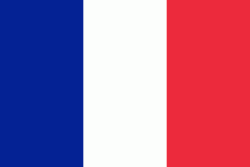Griesheim-près-Molsheim
Griesheim-près-Molsheim (, literally Griesheim near Molsheim; Griesheim bei Molsheim) is a commune in the Bas-Rhin department in Grand Est in north-eastern France.
It is one of nine member communes of the Communauté de communes des Portes de Rosheim.
Griesheim lies some five kilometres (three miles) to the south-east of Molsheim.
The village is well connected, just eight kilometres (five miles) south-west of Strasbourg airport, with the centre of Strasbourg some eighteen kilometres (eleven miles) away. Griesheim is a couple of kilometres from the recently extended A35 autoroute on one side and the A352 autoroute on the other, although delays exacerbated by traffic congestion are a frequent feature of the roads in the Molsheim and Strasbourg areas. For rail travellers, the nearest station is in the neighbouring village of Rosheim.
About seven miles (four kilometres) to the west, the Upper Rhine plain gives way to the lower wooded slopes of the Vosges Mountains. To the east the land becomes progressively flatter and the agricultural potential of the alluvial soil richer between the village and the River Rhine.
Griesheim-près-Molsheim shoul not be confused with Griesheim-sur-Souffel, a village on the northern edge of Strasbourg. The two Griesheims are less than twenty kilometres (twelve miles) apart.
It is one of nine member communes of the Communauté de communes des Portes de Rosheim.
Griesheim lies some five kilometres (three miles) to the south-east of Molsheim.
The village is well connected, just eight kilometres (five miles) south-west of Strasbourg airport, with the centre of Strasbourg some eighteen kilometres (eleven miles) away. Griesheim is a couple of kilometres from the recently extended A35 autoroute on one side and the A352 autoroute on the other, although delays exacerbated by traffic congestion are a frequent feature of the roads in the Molsheim and Strasbourg areas. For rail travellers, the nearest station is in the neighbouring village of Rosheim.
About seven miles (four kilometres) to the west, the Upper Rhine plain gives way to the lower wooded slopes of the Vosges Mountains. To the east the land becomes progressively flatter and the agricultural potential of the alluvial soil richer between the village and the River Rhine.
Griesheim-près-Molsheim shoul not be confused with Griesheim-sur-Souffel, a village on the northern edge of Strasbourg. The two Griesheims are less than twenty kilometres (twelve miles) apart.
Map - Griesheim-près-Molsheim
Map
Country - France
 |
 |
| Flag of France | |
Inhabited since the Palaeolithic era, the territory of Metropolitan France was settled by Celtic tribes known as Gauls during the Iron Age. Rome annexed the area in 51 BC, leading to a distinct Gallo-Roman culture that laid the foundation of the French language. The Germanic Franks formed the Kingdom of Francia, which became the heartland of the Carolingian Empire. The Treaty of Verdun of 843 partitioned the empire, with West Francia becoming the Kingdom of France in 987. In the High Middle Ages, France was a powerful but highly decentralised feudal kingdom. Philip II successfully strengthened royal power and defeated his rivals to double the size of the crown lands; by the end of his reign, France had emerged as the most powerful state in Europe. From the mid-14th to the mid-15th century, France was plunged into a series of dynastic conflicts involving England, collectively known as the Hundred Years' War, and a distinct French identity emerged as a result. The French Renaissance saw art and culture flourish, conflict with the House of Habsburg, and the establishment of a global colonial empire, which by the 20th century would become the second-largest in the world. The second half of the 16th century was dominated by religious civil wars between Catholics and Huguenots that severely weakened the country. France again emerged as Europe's dominant power in the 17th century under Louis XIV following the Thirty Years' War. Inadequate economic policies, inequitable taxes and frequent wars (notably a defeat in the Seven Years' War and costly involvement in the American War of Independence) left the kingdom in a precarious economic situation by the end of the 18th century. This precipitated the French Revolution of 1789, which overthrew the Ancien Régime and produced the Declaration of the Rights of Man, which expresses the nation's ideals to this day.
Currency / Language
| ISO | Currency | Symbol | Significant figures |
|---|---|---|---|
| EUR | Euro | € | 2 |
| ISO | Language |
|---|---|
| EU | Basque language |
| BR | Breton language |
| CA | Catalan language |
| CO | Corsican language |
| FR | French language |
| OC | Occitan language |















